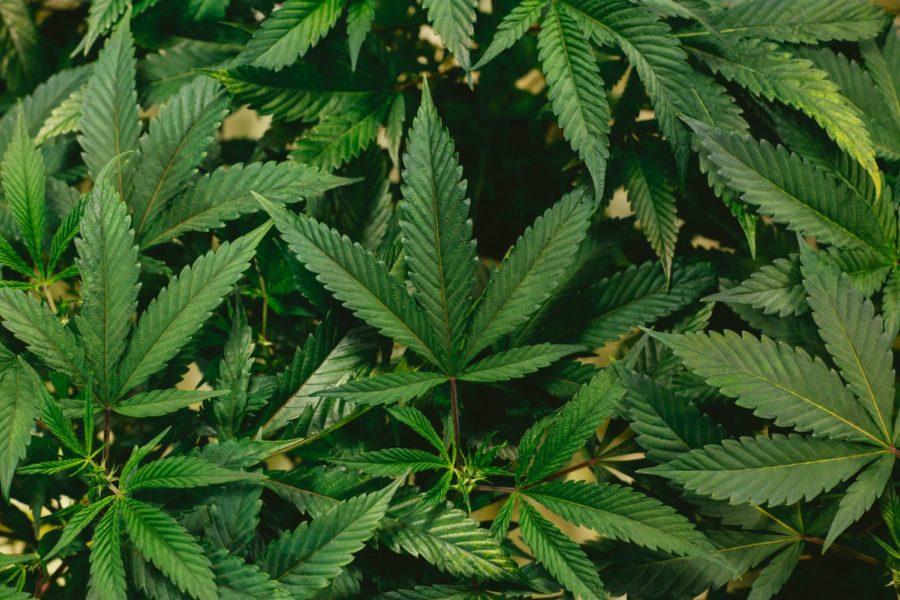Brown: Coming down off the high horse
September 15, 2021
High expectations are not held for “far-right” conservatives when it comes to personal liberty. As Austrian economist Mark Thornton recently described, there are still some hold-outs on the issue of legalizing or decriminalizing cannabis. Thornton responds to several accusations that have arisen since states have begun to nullify federal law and legalize marijuana.
One point of criticism is that marijuana smoking has increased and is as great a concern as cigarette smoke, despite average consumers going through many more tobacco cigarettes than “happy cigarettes.” Thornton also responds to blame being placed upon libertarians for ‘promising’ all sorts of benefits with legalization. One such ‘broken promise’ is that since the days Mary Jane was completely illegal, potency has actually risen.
Three things must be addressed here. First is the difference between decriminalizing something and legalizing it. Secondly, there are valid explanations for the so-called promises being broken. Thirdly, and most importantly, the foundation for why marijuana should be decriminalized needs examination.
The terms “legalize” and “decriminalize” are often used interchangeably, especially because of the ease of smashing the former into two syllables and the long inhale that must precede the articulation of the latter. But they do, can and should mean two different things. When something is decriminalized, the laws which once defined it as a crime are struck from the book. The policeman who once investigated it moves on to other tasks.
With legalization, on the other hand, the act or event now has new sections in law books describing its bounds and parameters. Far too often, permission must be granted by municipal or state agencies to engage in the legalized behavior. Requests are submitted, forms are photocopied, permits are granted and licenses are issued. Decriminalization subtracts from the bureaucracy’s workload; legalization lays it on thick. We cannot expect to see the same results from two very different actions.
When an economist, praxeologist or libertarian pundit explains the effects of ending a prohibition of a certain good, some take these explanations of decriminalization to be promises of the outcome of legalization. I bet there are many “Beltway libertarians” who conveniently set aside a taxation-is-theft mindset and hastily promote the legalization of skudunk with boasts of sky-high government revenues. But the ‘promise’ stands true that the potency of a substance decreases after decriminalization, ceteris paribus.
That is, all other things being equal, the fact that nobody is hunting you down to lock you up will mean the same risk — none — is taken whether you carry the cheap diluted product or “the good stuff.” The principle of increasing potency with increasing restriction is called the “Iron Law of Prohibition.” Consider the movie-goer who sneaks a flask into the theater where outside drinks are not allowed. He won’t be hauling spring water but smuggling in some ‘good old mountain dew.’ It isn’t worth the risk of punishment to carry half a tall boy. You may begin to see the Iron Law of Prohibition is not just a theoretical rule to guide our understanding of history or help us feel good about the new legislation. Indeed, public health experts Beletsky and Davis found in their study of the opioid fentanyl:
“The Iron Law of Prohibition helps to elucidate the folly of interdiction targeting a product with inelastic demand. … These interventions also resulted in market-driven changes in the potency of products that were made available through clandestine supply chains. … Alcohol prohibition, while well-intentioned, was undertaken without sufficient consideration of potential unintended consequences, with disastrous results. Under the Iron Law of Prohibition, the current approach to illicit opioids is likewise doomed to failure.”
Pragmatically, it is foolish to make potentially dangerous substances illegal. But pragmatism is not the end-all and be-all. Due to various factors — besides otherwise innocent men being free from reefer-related prison terms — the potency of pot has actually increased. As Thornton keenly observes, however, if you take into account the legalization of CBD and hemp, substances which don’t involve hallucinogenic THC, “it would mean that consumers as a group have effectively cut the potency of their products in half.”
When it comes to law and justice, we ought not to lay a foundation of feelings, which are subject to any and all influences. We ought not to rest upon the laurels of the latest sociological data. We ought not to be fully persuaded by anything other than solid, absolute right, and wrong. Just as there was no moral right for men of the Prohibition Era to steal other men’s alcohol and destroy it, there is no moral justification for men of our own day to imprison each other for possessing certain chemicals.
We can pronounce and denounce one thing as safe and another harmful, but to violate the right of property is injustice through and through. Might doesn’t make right. A majority’s opinion can become law, but can and should are two different things. It’s high time to stop infringing on people’s rights to run their own lives, to make their own personal choices and to engage in trade freely.
We can argue all day about the potential dangers of freedom versus potential benefits, or we can come down from our high horses and only engage in threats, force and violence when one’s rights are transgressed, rights such as life, liberty and the pursuit of happiness. It’s time to trash the Schedules. I highly recommend we decriminalize ganja and reap the benefits of treating our neighbors more justly.

















